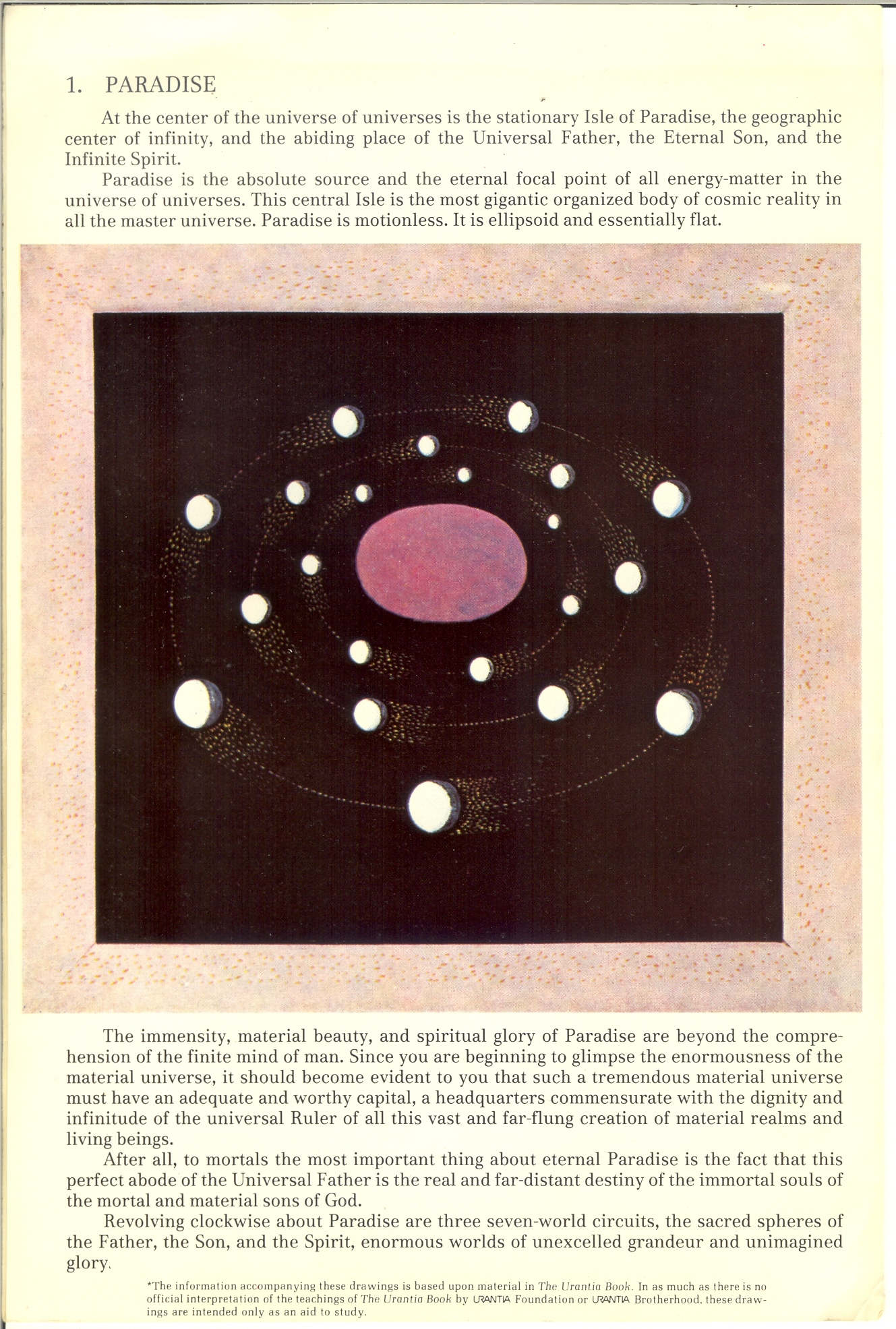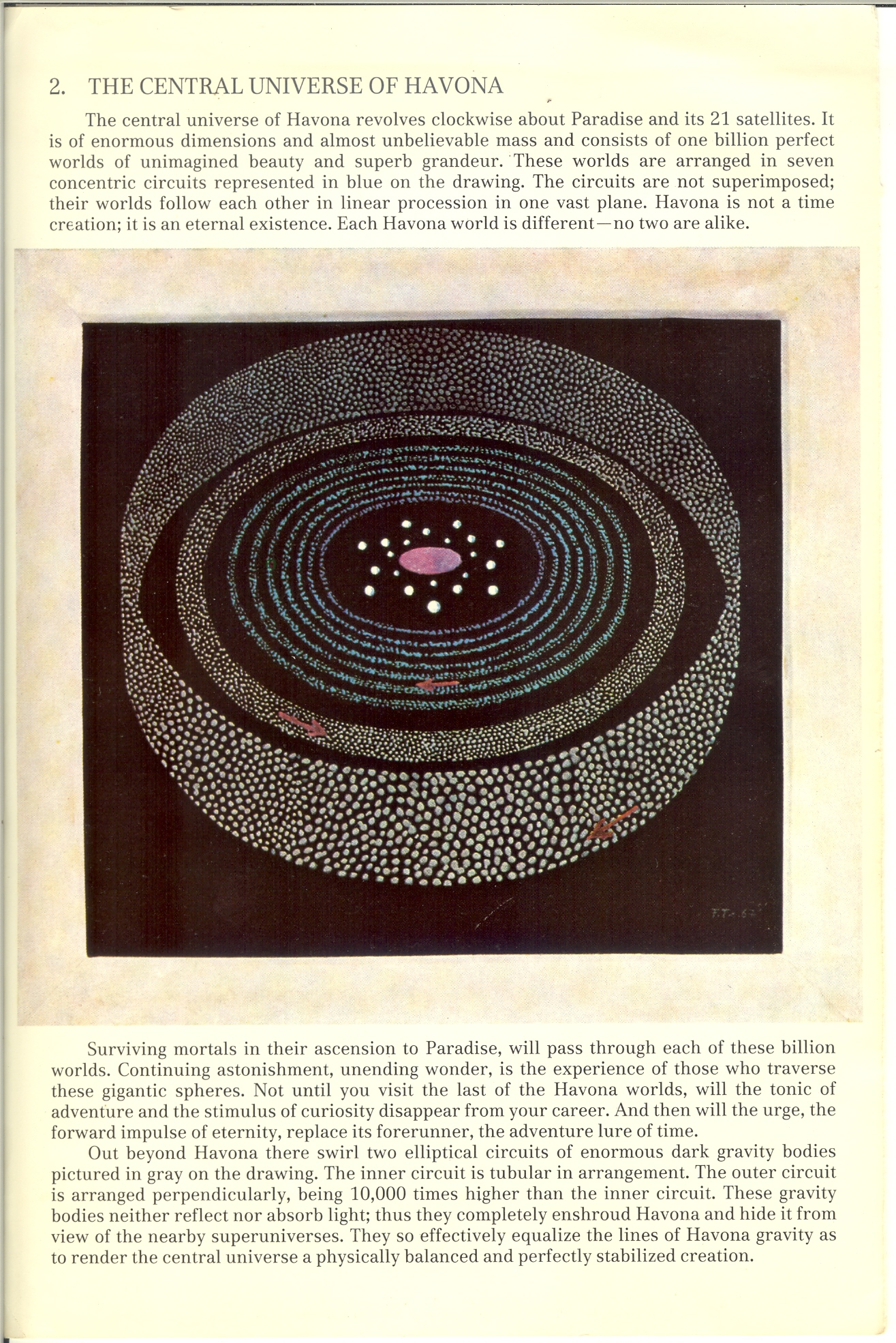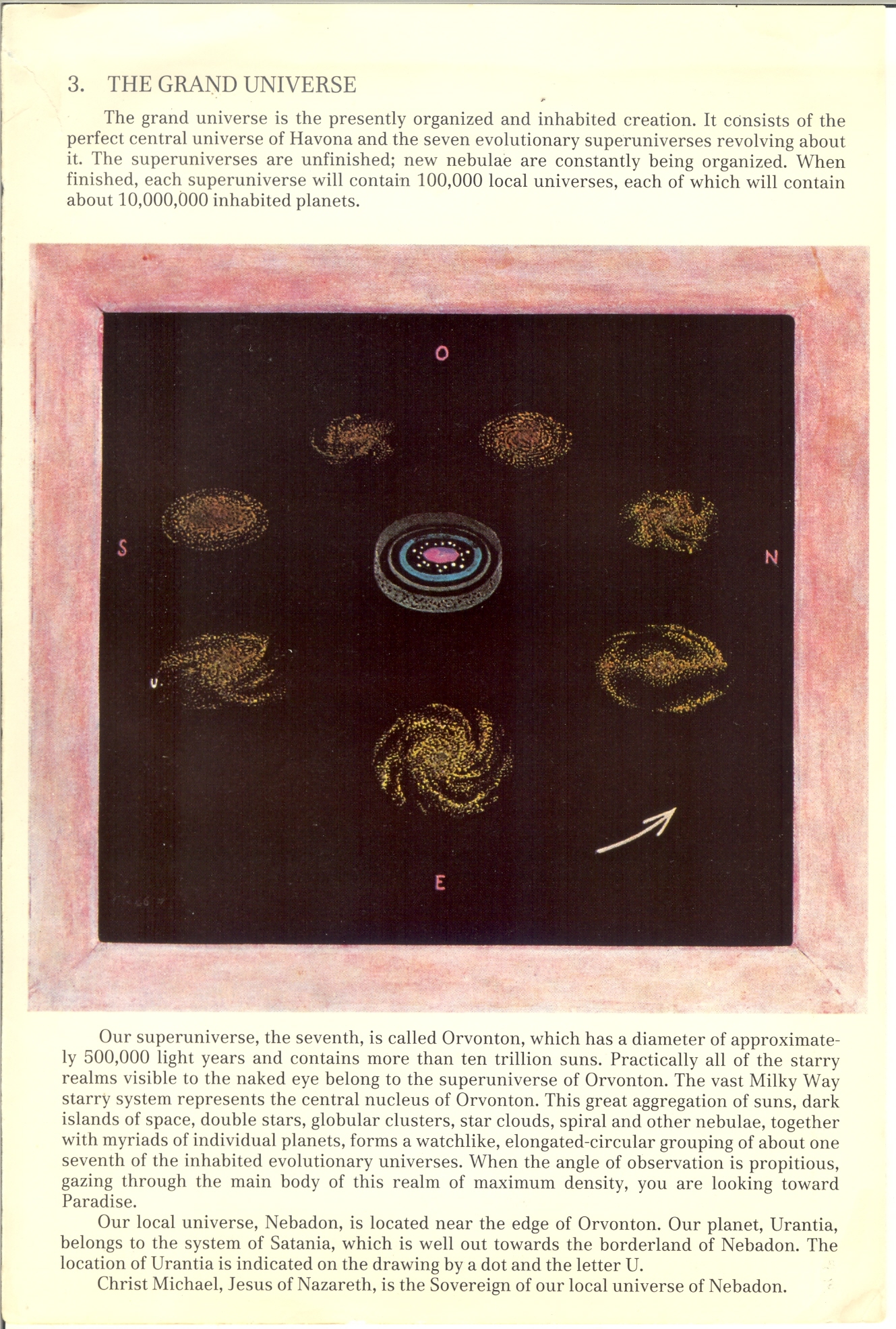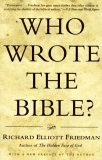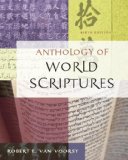
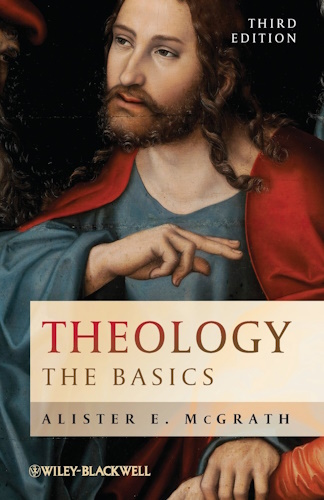

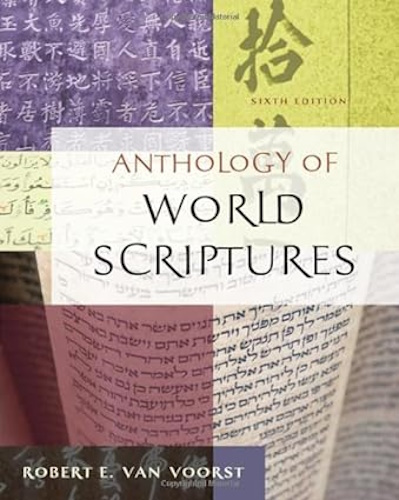

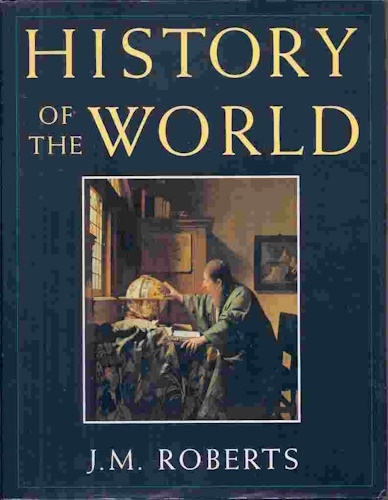



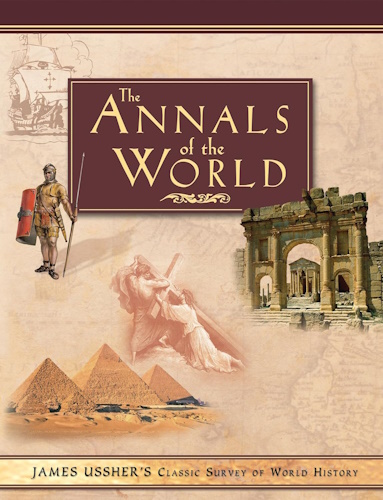

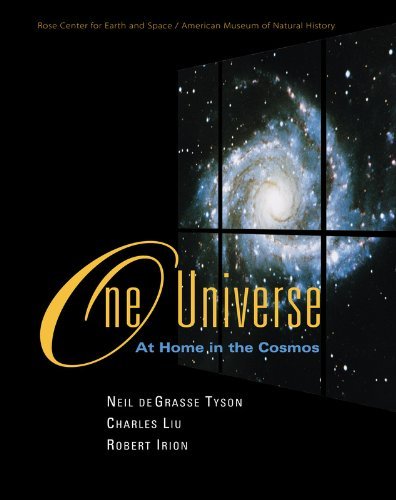



RealityRoars.com
Site Index
A collection of documents, reference works, articles, online books, writings, etc. treating theology, religions, philosophy, archaeology, anthropology, cosmology, history, myth, theory, and Webster's definition of conspiracy.
Conspiracy
conspiracy (con·spir·a·cy) - noun, plural con·spir·a·cies.
2. an evil, unlawful, treacherous, or surreptitious plan formulated
in secret by two or more persons; plot.
TABLE OF CONTENTS
-
- New World Order
- Shadow Government
- The Secret Team: - Table of Contents by L. Fletcher Prouty
The CIA and Its Allies in Control of the United States and the World - Corporate Frankenstein: A Special Essay
- The City Of London & The Fabian Society: History & Current Plans
- Pedogate: Women Operatives In Very High Places
- The Conspirators' Heirarchy: The Committee of 300 Dr. John Coleman
We frequently hear about "they" doing this, that or the other. "They" seem literally to be able to get away with murder. "They" increase taxes, send our sons and daughters to die in wars that do not benefit our country. "They" seem above our reach, out of sight, frustratingly nebulous when it comes to taking action against "them." No one seems able to clearly identify who "they" are. It is a situation that has pertained for decades. During the course of this book, we shall identify the mysterious "they" and then, after that, it is up to the people to remedy their situation. - The Controllers: A New Hypothesis of Alien Abduction
- Brain Zapping by Jason Jeffrey
- Bloodlines Of The Illuminati -Fritz Springmeier
- Deeper Insights Into The Illuminari Formula -Fritz Springmeier
- The Illuminati and the Council on Foreign Relations -Myron C. Fagan
- Silent Weapons For Quiet Wars
- New Order Of Barbarians
- Report From Iron Mountain:
On The Possibility And Desirability of Peace
Early in August of 1963, he said, he found a message on his desk that a "Mrs. Potts" had called him from Washington. When he returned the call, a MAN answered immediately, and told Doe, among other things, that he had been selected to serve on a commission "of the highest importance." Its objective was to determine, accurately and realistically, the nature of the problems that would confront the United States if and when a condition of "permanent peace" should arrive, and to draft a program for dealing with this contingency. The man described the unique procedures that were to govern the commission's work and that were expected to extend its scope far beyond that of any previous examination of these problems. - The Hidden Tyranny -- The Rosenthal Document
- The Occult Technology of Power
- Bilderberg Hotel in Osterbeek Holland
- The "Protocols"
- The Protocols of the Learned Elders of Zion
- The Protocols of the Synagogue of Satan -William Guy Carr
- The Truth About the Protocols -Gerald B. Winrod
- Visiting 'The Protocols' -The Christian Defense League
- The Protocols of the Learned Elders of Zion:
Proof of an Ancient Conspiracy -Ivan Fraser - Rabbi Emanuel Reichhorn's Protocols
- Protocols Decision Washed Out -EXAMINER - February 1938
- What World Famous Men Said About The Jews
- Globalist Imperial Network
- Things Christians Need To Know About Jews, Judaism and Zionism
- The Secret Team: - Table of Contents by L. Fletcher Prouty
- Secret Societies
- The Female Illuminati
- The Female Illuminati - A Brief Introduction
- The Female Illuminati - Power of the Templars
- The Female Illuminati - Jews and Templars: The Untold Story
- The Female Illuminati - The Black Nobility - An Introduction
- The Female Illuminati - The Order of Sion and Occult Christianity
- The Female Illuminati - From Heaven to Earth
- The Female Illuminati - By Sword and Shield
- Secret Societies: Gardiner's Forbidden Knowledge - Table of Contents
- The Stone Puzzle of Rosslyn Chapel
- The Merovingian Mythos and Its Roots in the Ancient Kingdom of Atlantis
- The Mysteries of Rennes-le-Chateau and the Prieure du Sion
- Prieure of Sion: the Mystery Deepens
- Priory Of Sion: The Facts, The Theories, The Mystery
- Protocols of Sion and the Heiron Du Val d'Or
- The Female Illuminati
- Shadow Government
- New World Order
-
- Policy and Politics
- Internationalism vs. Nationalism - Dr. Sadler Talk Notes From 1945
- The Timeline: Donald Trump, Q and The Great Awakening
- American Laws Most Americans Don't Know But Should
- Communism's 45 Goals - Congressional Record—Appendix, pp. A34-A35 Current Communist Goals EXTENSION OF REMARKS OF HON. A. S. HERLONG, JR. OF FLORIDA IN THE HOUSE OF REPRESENTATIVES Thursday, January 10, 1963
- The Fierce Urgency of Pork
- America’s Most Biblically-Hostile U. S. President
- 10 Reasons The U.S. Is No Longer The Land Of The Free
- Obama Establishes "Council Of Governors"
- Council Of Governors Takes Shape
- Executive Order 13575: The Theft Of Rural And Agricultural Lands For UN Agenda 21
- Policy and Politics
-
- Money and Banking
- Congressman James Traficant on The Bankruptcy of The United States
March 17, 1993 Vol. 33, page H-1303 - Congressman Louis T. McFadden on the Federal Reserve Corporation
Remarks in Congress, 1934 - How Venice Rigged the First, And Worst, Global Financial Collapse
- The Magic and Mystery of America's Money
- 10 Things That Every American Should Know About The Federal Reserve
- J.P. Morgan Financial Agents U.S. Civil War Gold Peru Bond
Everybody always asks the same question when they're told a story they just can't believe, "Where's the proof?"
This report by Unwanted Publicity Intelligence is a deliberately extensive and deeply researched document of proof, validating the legitimacy of "the one time only bonus commodity contract 3392 of April 14, 1875 through April 27, 1875 sold by 'Financial Agents of Peru' HOBSON HURTADO & CO. in New York, New York, U.S.A. on May 1, 1875 with supportive sovereign 'CERTIFICATE OF INDEBTEDNESS OF PERU' number 181 without coupons" owned by Vina Kathryn Durham and currently held within the DURHAM HOLDING TRUST of DURHAM INTERNATIONAL LIMITED, Tias 12087 of Ida Grove, Iowa, USA.
As of May 1, 1990, one side of the 7% interest amounted to a staggering $206,858,581,465,280,000,000.00!!! - The Secret of Oz – The History of Banking by Bill Still
- Why the Greatest Depression of All Time Has Begun
- How Globalism Has Destroyed Our Jobs, Businesses And National Wealth
- Congressman James Traficant on The Bankruptcy of The United States
- Money and Banking
-
- Liberty and Freedom
- Presidents I've Known by George Roof, Chief Master Sergeant, USAF (Retired)
- 10 Reasons The U.S. Is No Longer The Land Of The Free
- War Is A Racket by Major General Smedley Butler
- Current Communist Goals —
From Congressional Record, Vol. 109 - 88th Congress, 1st Session
Appendix Pages A1-A2842 - Jan. 9 - May 7, 1963 - What If Democracy Is Bunk? by Judge Andrew Napolitano
- Geert Wilders - Speech in Berlin, October 3, 2010
- Liberty and Freedom
-
- Other
- The Bucegi Mountain Secrets
 Secrets of the CIA's Global Sex Slave Industry by Dr. Sue Arrigo
Secrets of the CIA's Global Sex Slave Industry by Dr. Sue Arrigo Secrets of the CIA's Global Sex Slave Industry by Dr. Sue Arrigo —
Secrets of the CIA's Global Sex Slave Industry by Dr. Sue Arrigo —This is the original article that has generated considerable traffic and facebook likes. The updated version listed above is in the new format with added graphics and highlights.
- Mel Gibson: Hollywood Elites ‘Kill Innocent Children & Drink Their Blood’
- The History of Jewish Human Sacrifice by Willie Martin
- Jewish Occult Murders by Rev. Dr. Matt Hale 2002
- Jewish Ritual Murder –
Transcription of: Der Strumer (The Striker) May 1934 Published by Julius Streicher - The Bloody Passovers of Dr. Toaff
- Israel - The Jewel-Box of the World
-
Conversation With A Starship Captain?
Angel Number 505 - Possible meaning of the comment by Anonymous
- Other
![]()
![]()
History
history (his·to·ry) - noun, plural his·to·ries.
1. the branch of knowledge dealing with past events.
TABLE OF CONTENTS
-
- Pre-history
- Annals of Earth by Dan Sewell Ward
- Painted Caves of Lascaux
- Pre-history
-
- American History
- Before Independence
- Revolution and Founding
- The Declaration of Independence - 1776 -
- Articles of Confederation - 1777 -
- The Forgotten Presidents of the Continental Congresses and the United States under the Articles of Confederation
- Constitution For The United States: Its Sources and Its Application
- by Thomas James Norton. The best Constitution learning tool I've ever come across!! Published before the beginning of the "Socializing of America" in 1933, this online Edition presents the text of the Constitution one phrase at a time, immediately followed by the history and reasons for the inclusion of that particular phrase in the Constitution, with reference links to other pertinent data contained elsewhere in the text.. - The Signer's -- Biographies
Here's a complete group of all the signer's of the Declaration of Independence and the Constitution. No jumping from page to page. Each biography complete with pictures pops out in its own sub-window and stays until you close it. - The United States Civil Flag
Take a minute and look at what has been slowly removed from history and our memory! Does anyone out there remember being taught about our Union States' Peacetime Flag?? - Constitution of the United States
This edition of the Constitution, the service conract with our Federal and Municipal subcontractors, is just the text of Articles I - VII. Don't miss the pop-out biographies of the Signer's with pictures of their statues and map at Signer's Hall. - The Law by Claude Frédéric Bastiat
- The "Civil War" Era
- World Wars
- Military-Industrial-Complex
- Social and Economic Transformation
-
Whence & Pence - Table of Contents
-America from its Founding to its Unbounding in twelve parts by Douglas V. Gnazzo. -
New Order Of Barbarians
- Lecture given by Dr. Richard Day (who died in 1989). At the time, Dr. Day was Professor of Pediatrics at Mount Sinai Medical School in New York. Previously he had served as Medical Director of Planned Parenthood Federation of America. WARNING - This material is disturbing and has NOTHING to do with pediatrics or medicine! -
Report From Iron Mountain: On The Possibility And Desirability of Peace
- Early in August of 1963, he said, he found a message on his desk that a "Mrs. Potts" had called him from Washington. When he returned the call, a MAN answered immediately, and told Doe, among other things, that he had been selected to serve on a commission "of the highest importance." Its objective was to determine, accurately and realistically, the nature of the problems that would confront the United States if and when a condition of "permanent peace" should arrive, and to draft a program for dealing with this contingency. The man described the unique procedures that were to govern the commission's work and that were expected to extend its scope far beyond that of any previous examination of these problems. -
Communism's 45 Goals
- Congressional Record—Appendix, pp. A34-A35 Current Communist Goals EXTENSION OF REMARKS OF HON. A. S. HERLONG, JR. OF FLORIDA IN THE HOUSE OF REPRESENTATIVES Thursday, January 10, 1963
-
Whence & Pence - Table of Contents
- Administration Infiltration
- Who Is Running America?
- Otto Skorzeny's Deathbed Confessions -
by Don Nicoloff -- From the April 2007 Idaho Observer - The Hidden Tyranny -- The Rosenthal Document
-
Things Christians Need To Know About Jews, Judaism and Zionism
- by Lt. Col. Gordon "Jack" Mohr, AUS RET. - What World Famous Men Said About The Jews
- Benjamin H. Freedman knew what he was talking about because he had been an insider at the highest levels of Jewish organizations and Jewish machinations to gain power over our nation. Mr. Freedman was personally acquainted with Bernard Baruch, Samuel Untermyer, Woodrow Wilson, Franklin Roosevelt, Joseph Kennedy, and John F. Kennedy, and many more movers and shakers of our times.
-
Benjamin Freedman Speaks on Zionism
- 1961 speech at the Willard Hotel - Benjamin Freedman's 1974 Speech in Washington
- Zionism - The Hidden Tyranny by Benjamin H. Freedman
- Facts Are Facts by Benjamin H. Freedman
- The Truth About Khazars by Benjamin H. Freedman
-
Benjamin Freedman Speaks on Zionism

- American History
-
- European History – Europe can be divided into seven geographic regions: Scandinavia (Iceland, Norway, Sweden, Finland, and Denmark); the British Isles (the United Kingdom and Ireland); W Europe (France, Belgium, the Netherlands, Luxembourg, and Monaco); S Europe (Portugal, Spain, Andorra, Italy, Malta, San Marino, and Vatican City); Central Europe (Germany, Switzerland, Liechtenstein, Austria, Poland, the Czech Republic, Slovakia, and Hungary); SE Europe (Slovenia, Croatia, Bosnia and Herzegovina, Serbia, Montenegro, Albania, Macedonia, Romania, Bulgaria, Greece, and the European part of Turkey); and E Europe (Estonia, Latvia, Lithuania, Belarus, Ukraine, Moldova, the European portion of Russia, and by convention the Transcaucasian countries of Georgia, Armenia, and Azerbaijan).
- Merovingians They Are Not
- The Aldobrandini, Lucifer and Its Servants
- Uhtred the Bold - The Real Uhtred of Bebbanburgh
- History of France 100 B.C. - 1180 A.D.
- The Merovingian Mythos, and its Roots in the Ancient Kingdom of Atlantis
- The Thirteenth Tribe by Arthur Koestler
- Genesis Of The Grail Kings - Lecture by Laurence Gardner
- Bloodline Of The Holy Grail - Lecture by Laurence Gardner
- Monarchy: The Primordial Form of Government, and its Basis in the "Lord of the Earth" Concept
- The Biological Basis of Elitism and..."The Divine Right" Rule
- In Defense of Kingship and Divine Right
- The British Chronicles by David Hughes
- Atlantis (Excellent Read! Research of people migrations is impressive.~gba)
- The Picts
- The Holy Grail and The Grail-Kings
- The Anglo Saxon Bretwaldas
- The Viking Age
- The Old English Royal House
- The Conqueror and His Successors
- Cutting of the Elm
- Alternate European Histories
- Appendices to The Irish Origins of Civilization by Michael Tsarion
- Druidic Symbolism in Masonry and Judeo-Christianity
- Recent Discoveries Confirming the Irish Origins of Civilization
- The Minoan Civilization of Crete
- Conor MacDari
- Comyns Beaumont and the Keys to World History
- L. A. Waddell
- Symbolism of the Serpent
- The Trees of Life
- The Rape of Tara - Hill of Kings
- Light, Magic, Masonry
- The Work of Kersey Graves
- Forgery In Christianity
- Atonism and the Cult of Mithras
- The Goddess Minerva and Symbolism
- The Evolution Hoax
- The Secret Founding of America
- Etymology: Key to the Past
- Appendices to The Irish Origins of Civilization by Michael Tsarion
- European History – Europe can be divided into seven geographic regions: Scandinavia (Iceland, Norway, Sweden, Finland, and Denmark); the British Isles (the United Kingdom and Ireland); W Europe (France, Belgium, the Netherlands, Luxembourg, and Monaco); S Europe (Portugal, Spain, Andorra, Italy, Malta, San Marino, and Vatican City); Central Europe (Germany, Switzerland, Liechtenstein, Austria, Poland, the Czech Republic, Slovakia, and Hungary); SE Europe (Slovenia, Croatia, Bosnia and Herzegovina, Serbia, Montenegro, Albania, Macedonia, Romania, Bulgaria, Greece, and the European part of Turkey); and E Europe (Estonia, Latvia, Lithuania, Belarus, Ukraine, Moldova, the European portion of Russia, and by convention the Transcaucasian countries of Georgia, Armenia, and Azerbaijan).
-
- Middle East History – the area from Libya east to Afghanistan, usually including Egypt, Sudan, Israel, Jordan, Lebanon, Syria, Turkey, Iraq, Iran, Saudi Arabia, and the other countries of the Arabian peninsula.
- The Uruk List of Kings and Sages and Late Mesopotamian Scholarship
- Anunnaki Time Line by Zecharia Sitchin
- Anu - Supreme Monarch of the Mesopotamian Gods
- Nammu - Mother of all Sumerian Gods
- Code of Ur-Nammu
- Chronology of Babylonia and Assyria
- Table of Sumerian Deities
- Ancient Near East (Babylonia) Glossary and Texts
- Ancient Sumeria - Nimrod's Story
- History And The New Testament
- a laymans research confirms The Urantia Book's revelations concerning the date of Jesus' birth and the date of the Star of Bethlehem - Israel - The Jewel-Box of the World
- The Vengeance of the Jews Was Stronger Than Their Avarice:
Modern Historians and the Persian Conquest of Jerusalem in 614 by Elliott Horowitz
- Middle East History – the area from Libya east to Afghanistan, usually including Egypt, Sudan, Israel, Jordan, Lebanon, Syria, Turkey, Iraq, Iran, Saudi Arabia, and the other countries of the Arabian peninsula.
-
- Myth – Ancient legendary stories of heros and gods usually providing a moral antidote. In the academic fields of mythology, mythography, or folkloristics, a myth is a sacred story concerning the origins of the world or how the world and the creatures in it came to be in their present form. The active beings in myths are generally gods and heroes. Myths often are said to take place before recorded history begins. In saying that a myth is a sacred narrative, what is meant is that a myth is believed to be true by people who attach religious or spiritual significance to it. Use of the term by scholars does not imply that the narrative is either true or false. It should be known that myths have historical basis.
- Geoffrey of Monmouth - History of the Kings of Britian
- Bulfinch's Mythology
- Atlantis (Excellent Read! Research of people migrations is impressive.~gba)
- Statue of Zeus at Olympia by Phidias
- Nemesis - Follow The History Of The Word
- The Story of Lilith
- The Lilith Myth
- Lilith: From Demoness to Dark Goddess
- Myth – Ancient legendary stories of heros and gods usually providing a moral antidote. In the academic fields of mythology, mythography, or folkloristics, a myth is a sacred story concerning the origins of the world or how the world and the creatures in it came to be in their present form. The active beings in myths are generally gods and heroes. Myths often are said to take place before recorded history begins. In saying that a myth is a sacred narrative, what is meant is that a myth is believed to be true by people who attach religious or spiritual significance to it. Use of the term by scholars does not imply that the narrative is either true or false. It should be known that myths have historical basis.
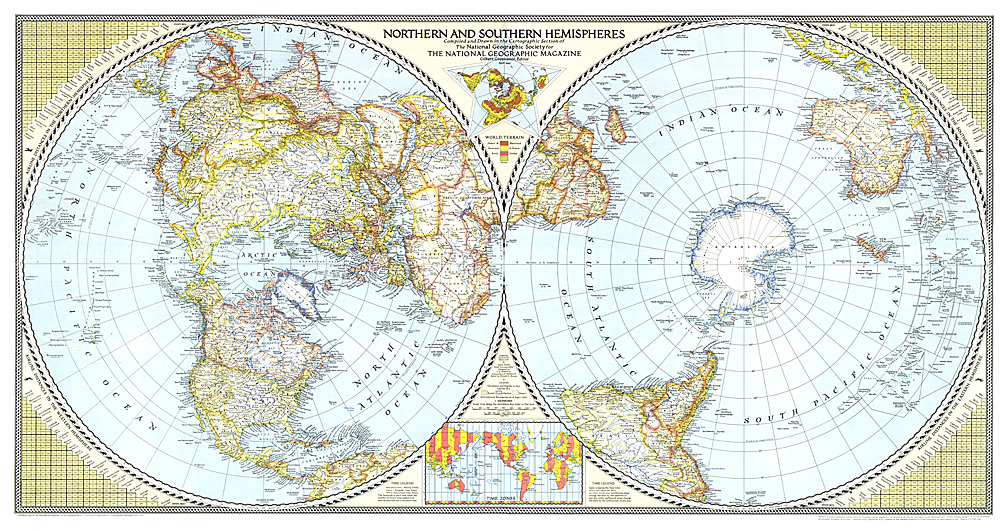
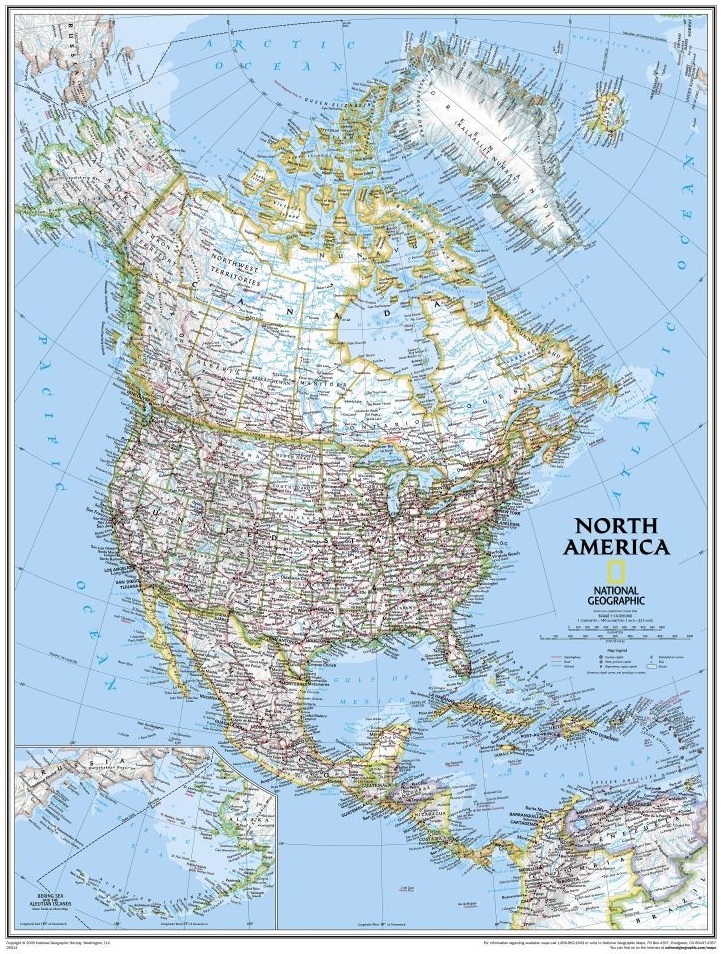

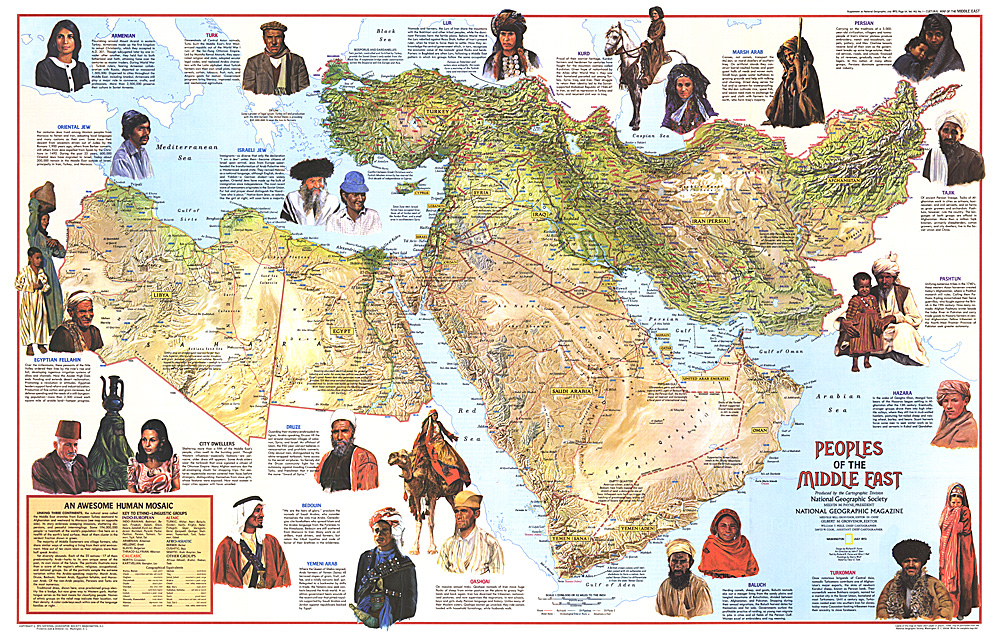
- Articles and Other Expounding
![]()
![]()
Science
science (sci·ence) - noun.
2. systematic knowledge of the physical or material world gained
through observation and experimentation.
TABLE OF CONTENTS
-
- Archaeology - the scientific study of historic or prehistoric peoples and their cultures by analysis of their artifacts, inscriptions, monuments, and other such remains, especially those that have been excavated.
- The Importance of Questioning History: From Malta to the Dead Sea Scrolls
- Painted Caves of Lascaux
- Gobekli Tepe Report by Halbert Katzen, J.D.
The Urantia Book provides a history of humanity that harmonizes perfectly well with the discoveries being made at Gobekli Tepe. It presents an explanation of the Gobekli Tepe mysteries in terms of an Adam and Eve story that varies significantly from the Old Testament record, but, which the authors assert, is nonetheless the basis for many of our myths and religious traditions about the origins of humanity. Not surprisingly, because of the unusual nature and age of this archaeological site, scholars quickly began speculating on how it may relate to the religious traditions about Adam and Eve. - Was Israel the birthplace of modern man?
- Lost civilization under Persian Gulf?
- New Light on Human Prehistory in the Arabo-Persian Gulf Oasis
- See the .pdf version: New Light on Human Prehistory in the Arabo-Persian Gulf Oasis

- See the .pdf version: New Light on Human Prehistory in the Arabo-Persian Gulf Oasis
- Modern Humans Reached Arabia Earlier Than Thought
- Texas Artifacts May Rewrite History
- Ancient Tool Kit - Humans Settled North America Earlier Than Thought
- Ancient Struggle Over Holy Land Supremacy
- Archaeology - the scientific study of historic or prehistoric peoples and their cultures by analysis of their artifacts, inscriptions, monuments, and other such remains, especially those that have been excavated.
-
- Anthropology - The scientific study of the origin, the behavior, and the physical, social, and cultural development of human beings.
- The Human Skull That Challenges The Out of Africa Theory
- Research on the Double Dual Origin of Modern Man and pre-Modern Man by Halbert Katzen, J.D.
- Adam and Eve Report by Halbert Katzen, J.D.
- Eugenics, Race, and The Urantia Book by Halbert Katzen, J.D.
- A Twisted History: The Double Helix of DNA and Genesis
- In the Bones of a Buried Child, Signs of a Massive Human Migration to the Americas
- Going Where Darwin Feared to Tread - Decoding the History of Human Evolution
- Ardipithecus Ramidus - Potential Human Ancestor
- Modern Humans Reached Arabia Earlier than Thought
- The Golden Age, Psychopathy and the Sixth Extinction
- Anthropology - The scientific study of the origin, the behavior, and the physical, social, and cultural development of human beings.
-
- Cosmology - The world or universe regarded as an orderly, harmonious system.
- Cosmology - The world or universe regarded as an orderly, harmonious system.
-
- Geology - The scientific study of the origin, history, and structure of the earth.
- Garden of Eden Report by Halbert Katzen, J.D.
- The Case of the Permian Extinction
- The Great Dying
- Geology - The scientific study of the origin, history, and structure of the earth.
-
- Other
- The Urantia Book Scientific Discoveries by Dr. Kary Banks Mullis
Dr. Kary Mullis received a Nobel Prize in chemistry in 1993, for his invention of the polymerase chain reaction (PCR). The process, which Kary Mullis conceptualized in 1983, is hailed as one of the monumental scientific techniques of the twentieth century. The polymerase chain reaction, an elegant way to make copies of a DNA strand using the enzyme polymerase and some basic DNA "building blocks," opened the door to more in-depth study of DNA — like the Human Genome Project. Mullis shared the 1993 Nobel Prize in Chemistry for developing this technique. - The Hydro-Plate Theory and The Great Flood
- Quantum Cold-Case Mysteries Revisited by Lane Davis
- Exopolitics and the Human Genome Project
- Corruption of Science in America
- Annals of Earth by Dan Sewell Ward
- The Urantia Book Scientific Discoveries by Dr. Kary Banks Mullis
- Other
![]()
![]()
Theology
theology (the·ol·o·gy) - noun, plural the·ol·o·gies.
1. the field of study and analysis that treats of God and of God's attributes
and relations to the universe; study of divine things or religious truth; divinity.
TABLE OF CONTENTS
-
- Egyptian
- Babylonian and Sumerian
- Anu - Supreme Monarch of the Mesopotamian Gods
- Nammu - Mother of all Sumerian Gods
- Code of Ur-Nammu
- Chronology of Babylonia and Assyria
- Table of Sumerian Deities
- Ancient Near East (Babylonia) Glossary and Texts
- The Babylonian Legends Of The Creation by E. A. Wallis Budge
- The Babylonian Story Of The Deluge by E. A. Wallis Budge
- The Flood Narrative of Gilgamesh
- Ugaritic
- Judaism
- Old Testament Apocrypha
- Old Testament Canonical Books of the Holy Bible
- Come and Hear
- Meet the Talmud and the students of the Talmud — Three and a half million words of the uncensored Talmud on line, with discussions on its place in the modern world by Elizabeth Dilling, Rabbi Dr. J. H. Hertz, Rabbi Dr. I. Epstein, Rabbi Michael Rodkinson, Rabbi Israel Brodie, Rabbi Dr. Louis Finkelstein, and many other Talmud luminaries, Orthodox, Conservative, and Reform — and your hostess, Carol A. Valentine. This website is inspired by Rabbi Professor Jonathan Sacks, Chief Rabbi of the British Commonwealth, and to a lesser extent, the current President of the United States, George Bush. We are dedicated to bringing about understanding between people of different faiths. - Josephus The Complete Works
- The Legends of the Jews
- The Book Of The Cave Of Treasures
- Abraham Chronology
- In the Beginning: Compelling Evidence for Creation and the Flood by Dr. Walt Brown
- The Hydro-Plate Theory and The Great Flood
- Hebrew Myth
- Gnosticism
- The Nag Hammadi Library
- Pistis Sophia [1921] translated by G.R.S. Mead
- Gnosis by Tom Montalk
- Christianity
- New Testament Canonical Books of the Holy Bible
- New Testament Apocrypha
- History And The New Testament by Jack Kilmon
- a laymans research confirms The Urantia Book's revelations concerning the date of Jesus' birth and the date of the Star of Bethlehem
- The Urantia Book
- The Urantia Book - Table of Contents
- The Urantia Book - Topical Index
- History and Origins
- The Birth Of A Divine Revelation
The Mechanical Origin of The Urantia Papers - A History of The Urantia Movement
Submitted to the court in the Maaherra case by the Urantia Foundation - A History of The Urantia Papers - Table of Contents
- by Larry Mullins - Loss of the Urantia Papers? - by Larry Mullins
- On The Origin of The Urantia Book
Meredith Sprunger's Notes
- The Birth Of A Divine Revelation
- Articles and Commentary
- Introduction to the World's Religions
for Readers of The Urantia Book - by Dr. Meredith Sprunger - UBtheNews - Verifying history and science in The Urantia Book
- Research on the Double Dual Origin of Modern Man and pre-Modern Man by Halbert Katzen, J.D.
- Adam and Eve Report by Halbert Katzen, J.D.
- Garden of Eden Report by Halbert Katzen, J.D.
- Eugenics, Race, and The Urantia Book by Halbert Katzen, J.D.
- Gobekli Tepe Report by Halbert Katzen, J.D.
The Urantia Book provides a history of humanity that harmonizes perfectly well with the discoveries being made at Gobekli Tepe. It presents an explanation of the Gobekli Tepe mysteries in terms of an Adam and Eve story that varies significantly from the Old Testament record, but, which the authors assert, is nonetheless the basis for many of our myths and religious traditions about the origins of humanity. Not surprisingly, because of the unusual nature and age of this archaeological site, scholars quickly began speculating on how it may relate to the religious traditions about Adam and Eve.
- Urantia Book Deviations from Traditional Christian Theology
- Melchizedek In The Bible, The Qumran Texts, and The Urantia Book
- Urantia Book Timeline
- 64 Original Urantia Book Concepts
- Urantia Namesake by Troy R. Bishop
- Internationalism vs. Nationalism - Dr. Sadler Talk Notes From 1945
- Time and Space by Bob Hunt, Ph.D.
- History And The New Testament by Jack Kilmon
a laymans research confirms The Urantia Book's revelations concerning the date of Jesus' birth and the date of the Star of Bethlehem - The Urantia Book Scientific Discoveries by Dr. Kary Banks Mullis
Dr. Kary Mullis received a Nobel Prize in chemistry in 1993, for his invention of the polymerase chain reaction (PCR). The process, which Kary Mullis conceptualized in 1983, is hailed as one of the monumental scientific techniques of the twentieth century. The polymerase chain reaction, an elegant way to make copies of a DNA strand using the enzyme polymerase and some basic DNA "building blocks," opened the door to more in-depth study of DNA — like the Human Genome Project. Mullis shared the 1993 Nobel Prize in Chemistry for developing this technique.
- Introduction to the World's Religions
- UrantiaGate: The Conspiracy Hypothesis
- Other Theological Interest
- Theosophy
- The Ocean Of Theosophy by William Q. Judge
- Isis Unveiled - Table of Contents by H.P. Blavatsky
- The Secret Doctrine - Table of Contents by H.P. Blavatsky
- The Gospel Of The Holy Twelve
- The Book of Mormon
- Oahspe
- Theosophy
- Treatise
- Josephus The Complete Works
- The Works of Philo
- The Origin of Our Belief in God
- The Legends Of The Jews
- The Two Babylons by Rev. Alexander Hislop - 1853
- The Archaic Primogenitors by Mr. Raymond Kenneth Petry
- Annals of Earth by Dan Sewell Ward
- Enoch & the Nephilim - Liber VII
- Gnosis by Tom Montalk
- Bible Origins
- Introduction
Walter Reinhold Warttig Mattfeld y de la Torre, M.A. Ed. embraces the Anthropological view that man has created his gods in his own image. It is understood that the Hebrews recast Mesopotamian and Canaanite myths about the gods and man's creation as there being only one god, their Yahweh. The findings of Science from the fields of Astrophysics, Geology, Archaeology, Anthropology, and Literary Criticism have concluded that the Bible is not the word of God. The "forensic evidence" (physical evidence) unequivocally contradicts (refutes, denies and challenges) the witness' (Bible's) testimony regarding the age of the Universe and of the Earth, how life came into being, and when this occurred. - Eden's Serpent and its Pre-biblical Mesopotamian Prototypes
- Genesis' Genesis, The Hebrew Transformation of the Ancient Near Eastern Myths and Their Motifs - Part One - Part Two
- The Primary History, Genesis-2Kings: The Case for a Single Author And Observations on The Craft of Ancient History Writing
- The Primary History, Genesis-2Kings: An Exilic Composition of March-August 560 B.C.?
- The Pre-Biblical Origins of the Cherubim And The Mercy Seat Atop the Ark of the Covenant
- Dating The Pentateuch Via Hebrew As A Language
- A Critique of the Primary History, Genesis-2Kings, being a Hellenistic Creation of the Hasmoneans
- Genesis' Literary Borrowing: Adam and Eve and Their Prototypes: Enkidu and the Temple Courtesan Shamhat From the Epic of Gilgamesh - Part One - Part Two
- The Garden of Eden's Pre-biblical Prototypes: The City-gardens of Eridu and Nippur in the Edin/Eden of Sumer - Part One - Part Two
- Yahweh-Elohim "The Fornicator God" Who Became Spiritually A "Eunuch God"
- Genesis' "The Fall" Of Man And Its Pre-Biblical Origins In Mesopotamian Myths
- Why The Bible Cannot Be The Word Of God
- Parallels Between Enkidu and Adam In the Epic of Gilgamesh and the Garden of Eden
- Man's Fall From Innocence: Adam, Adapa and Enkidu
- Serpent Who Walked and Talked in the Garden of Eden - Part One - Part Two
- Dilmun-Tilmun-Telmun The Sumerian Paradise or Pre-biblical Prototype for the Garden of Eden Has Not Been Correctly Identified Yet As Of 2008 - Part One - Part Two
- The Pre-Christian Origins of The New Testament's Demons/Daemones/Daimones
- Satan's Origins: How the New Testament's Satan came to be associated with the Serpent in the Garden of Eden
- Introduction
- Articles and Other Expounding
- A Twisted History: The Double Helix of DNA and Genesis
- Ancient Struggle Over Holy Land Supremacy
- The Evolution of God
- Meaning of the Word Nephilim
 by Michael S. Heiser, PhD
by Michael S. Heiser, PhD - The Nephilim: Their Origins and Evolution
 by Petros Koutoupis
by Petros Koutoupis - Identified As A Prostitute?
- America’s Most Biblically-Hostile U. S. President
- Pastor Joe Wright To Kansas State Legislature
- Harmonies of Liberty - Sermon by Rev. Dr. Sharon E. Watkins
–Given at the National Prayer Service January 21, 2009 - Abraham's Three Truths of Astronomy
- Intelligent Design
- From The Ashes of Angels
- Egyptian
![]()
![]()
TABLE OF CONTENTS
-
- Old Testament - The Old Testament is based primarily upon the Hebrew collection of religious writings. The Old Testament canon varies between Christian denominations; Protestants accept only the books found in the canon of the Hebrew Bible, dividing them into 39 books, while Catholic, Eastern Orthodox, and Oriental Orthodox churches accept somewhat larger collections of writings.
The Old Testament consists of many distinct books written, compiled, and edited by various authors over a period of centuries. It is not entirely clear at what point the parameters of the Hebrew Bible were fixed. Some scholars have opined that the canon of the Hebrew Bible was established already by about the 3rd century BC. At any rate, the development of the various forms of the Old Testament continued for centuries.
The books of the Old Testament can be broadly divided into following sections:
- The Law - The 5 Books of The Pentateuch (Torah)
- The History - books telling the history of the Israelites, from their conquest of Canaan to their defeat and exile in Babylon
- The Book of Joshua
- The Book of Judges
- The Book of Ruth
- The First Book of Samuel Otherwise Called the First Book of the Kings
- The Second Book of Samuel Otherwise Called the Second Book of the Kings
- The First Book of the Kings Commonly Called the Third Book of the Kings
- The Second Book of the Kings Commonly Called the Fourth Book of the Kings
- The First Book of the Chronicles
- The Second Book of the Chronicles
- Ezra
- The Book of Nehemiah
- The Book of Esther
- The "Wisdom" books - poetic books dealing in various forms with questions of good and evil in the world
- The Prophets - warnings of the consequences of turning away from God
- The Law - The 5 Books of The Pentateuch (Torah)
- Old Testament - The Old Testament is based primarily upon the Hebrew collection of religious writings. The Old Testament canon varies between Christian denominations; Protestants accept only the books found in the canon of the Hebrew Bible, dividing them into 39 books, while Catholic, Eastern Orthodox, and Oriental Orthodox churches accept somewhat larger collections of writings.
![]()
![]()
TABLE OF CONTENTS
- THE APOCRYPHA OF THE OLD TESTAMENT
- Old Testament Apocrypha - The Apocrypha Proper of the non-Canonical Jewish literature from 200 B.C. to A.D. 100 constitutes the excess of the Vulgate over the Hebrew Old Testament, which excess was in turn borrowed from the LXX. But this listing follows The Apocrypha and Pseudepigrapha of the old Testament in English, Volume i, Apocrypha edited by R.H. Charles and differs from the Apocrypha Proper at once in the way of excess and in the way of defect. 3 Maccabees has been added after 2 Maccabees, since it is contained in many MSS. of the LXX, and 4 Ezra has been transferred to Volume ii, Pseudepigrapha, since it is essentially a Pseudepigraph.
How the term 'Apocryphal Books' arose has not yet been determined. It did not, as Zahn (Gcscli. dcs Nciitcstamcntlichen Kaiioiis I. i. 123 sq.), Schurer, Porter, N. Schmidt, and others maintain, originate in the Late Hebrew phrase designating 'hidden books.' But Talmudic literature knows nothing of such a class. The Hebrew word ganaz does not mean 'to hide', but 'to store away' things in themselves precious. Indeed, so far is it from being a technical term in reference to non-Canonical writings, that it is most frequently used in reference to the Canonical Scriptures themselves. When writings were wholly without the pale of the Sacred books — such as those of the heretics or Samaritans — they were usually designated hisonim, i.e. 'outside' (Sanh. x. i).
The term "apocrypha" comes from the Greek word meaning "hidden" or "secret." Originally, the term was applied to sacred books whose contents were too exalted to be made available to the general public. Gradually, the term "apocrypha" took on a disparaging connotation, since the orthodoxy of these hidden books was often questionable.
Deuterocanonical is a term first coined in 1566 by the theologian Sixtus of Siena to describe scriptural texts of the Old Testament whose canonicity was explicitly defined for Catholics by the Council of Trent. Their acceptance among early Christians was not universal, but regional councils in the West published official canons that included these books as early as the fourth and fifth centuries.
The Catholic deuterocanonical scriptural texts as defined by the Council of Trent follow the listing in The New English Bible except for 3 Maccabees and 4 Ezra as noted above for this listing.
- Historical Books
- The First Book of Esdras (Cook)
- The First Book of the Maccabees (Oesterley)
- The Second Book of the Maccabees (Moffatt)
- The Third Book of Maccabees (Emmet)
- Quasi-Historical Books Written With A Moral Purpose
- Wisdom Literature
- Ecclesiaticus or the Wisdom of Jesus son of Sirach (Box and Oesterley)
- The Wisdom of Solomon (Holmes)
- Additions To And Completions Of The Canonical Books
- 1 Baruch (Whitehouse)
- A Letter of Jeremiah (Ball)
- The Prayer of Manasseh
- Additions to Daniel:
- The Song of the Three (Bennett)
- Daniel and Susanna (Kay)
- The Idol Bel and the Dragon (Witton Davies)
- Additions to Esther:
- The Rest of the Chapters of the Book of Ester
- Historical Books
- Old Testament Apocrypha - The Apocrypha Proper of the non-Canonical Jewish literature from 200 B.C. to A.D. 100 constitutes the excess of the Vulgate over the Hebrew Old Testament, which excess was in turn borrowed from the LXX. But this listing follows The Apocrypha and Pseudepigrapha of the old Testament in English, Volume i, Apocrypha edited by R.H. Charles and differs from the Apocrypha Proper at once in the way of excess and in the way of defect. 3 Maccabees has been added after 2 Maccabees, since it is contained in many MSS. of the LXX, and 4 Ezra has been transferred to Volume ii, Pseudepigrapha, since it is essentially a Pseudepigraph.
Pseudepigrapha - [Gr.,=things falsely ascribed], meaning "books with false titles," refers to books similar in type to those of the Bible whose authors gave them the names of persons of a much earlier period in order to enhance their authority. The Pseudepigrapha is a collection of early Jewish and some Jewish-Christian writings composed between c.200 B.C. and c.A.D. 200, not found in the Bible or rabbinic writings.
The first listing follows The Apocrypha and Pseudepigrapha of the old Testament in English, Volume ii, Pseudepigrapha edited by R.H. Charles:
- Primitive History Rewritten From The Standpoint Of The Law
- The Book of Jubilees (Charles)
- Sacred Legends
- The Letter of Aristeas (Andrews)
- The Books OF Adam and Eve (Wells)
- The First Book of Adam and Eve (Rutherford H. Platt, Jr.)
- The Second Book of Adam and Eve (Rutherford H. Platt, Jr.)
- The Life of Adam and Eve (Charles)
- Slavonic Life of Adam and Eve (Charles)
- The Ascension of Isaiah
- The Martyrdom of Isaiah i-v 14 (Charles)
- The Vision of Isaiah vi—-xi 40
- The Testament of Hezekiah ii 13 b—iv 18
- Apocalypses
- Book of Enoch (1 Enoch) (Charles)
- 1 Enoch - a side by side composite of R. H. Charles, Richard Laurence and others
- The Testaments of the Twelve Patriarchs (Charles)
- I. The Testament of Reuben Concerning Thoughts
- II. The Testament of Simeon Concerning Envy
- III. The Testament of Levi Concerning the Priesthood and Arrogance
- IV. The Testament of Judah Concerning Fortitude, and Love of Money, and Fornication
- V. The Testament of Issachar Concerning Simplicity
- VI. The Testament of Zebulun Concerning Compassion and Mercy
- VII. The Testament of Dan Concerning Anger and Lying
- VIII. The Testament of Naphtali Concerning Natural Goodness
- IX. The Testament of Gad Concerning Hatred
- X. The Testament of Asher Concerning Two Faces of Vice and Virtue
- XI. The Testament of Joseph Concerning Sobriety
- XII. The Testament of Benjamin Concerning a Pure Mind
- The Sibylline Oracles (Milton S. Terry)
- The Assumption of Moses (Charles)
- 2 Enoch, or The Book of the Secrets of Enoch (Forbes and Charles)
- The Book Of The Apocalypse Of Baruch The Son Of Neriah
(2 Baruch) Syraiac (Charles) - The Greek Apocalypse of Baruch (3 Baruch) (Hughes)
- The Second Book of Esdras (4 Ezra) (Box)
- Book of Enoch (1 Enoch) (Charles)
- Psalms
- The Psalms of Solomon (Gray)
- Ethics and Wisdom Literature
- The Fourth Book of Maccabees (Townshend)
- Pirke Aboth or Sayings Of The Fathers (Herford)
- The Story of Ahikar (Harris, Lewis, Conybeare)
- History The End of the works included in The Apocrypha and Pseudepigrapha of the old Testament in English, Volume i & ii edited by R.H. Charles
In the Preface of The Apocryphal Old Testament edited by H.F.D. Sparks published 1984, Clarendon Press, Mr. Sparks addresses the 'Pseudepigrapha' issue with these words: "And finally, the term 'Pseudepigrapha' has been avoided altogether. Pseudepigrapha is, in any case, an ugly word. And when used in association with 'Apocrypha', as it so frequently is, it can be very misleading. Strictly it is 'a collective term for books or writings bearing a false title, or ascribed to another than the true author'. Many of the books commonly grouped together and alluded to as 'the Pseudepigrapha' are indeed pseudepigraphical — no doubt a majority. But there is nothing distinctive about this: there are pseudepigraphical books in the Apocrypha (e.g. The wisdom of Solomon), and there are pseudepigraphical books in the Old Testament itself (e.g. Daniel). To refer to 'the Pseudepigrapha', without further definition or qualification, creates the impression in the popular mind that alongside the 'canonical' Old Testament and the 'deutero-canonical' Apocrypha there is a third, universally recognized, 'trito-canonical' collection of books — when there is not. Any collection of books of this kind, however chosen, is bound to mirror the predilections and the prejudices of its editor(s); and it is well that this should be realized. The term therefore, though ancient, is best avoided."
This second list follows The Apocryphal Old Testament edited by H.F.D. Sparks published 1984, Clarendon Press:
- The Apocryphal Old Testament
- Jubilees (R.H. Charles revised by C. Rabin)
- The Life of Adam and Eve (L.S.A. Wells revised by M. Whittaker)
- Book of Enoch (1 Enoch) (M.A. Knibb)
- The Book of the Secrets of Enoch (2 Enoch) (A. Pennington)
- The Apocalypse of Abraham (A. Pennington)
- The Testament of Abraham (N. Turner)
- The Testament of Isaac (K.H. Kuhn)
- The Testament of Jacob (K.H. Kuhn)
- The Ladder of Jacob (A. Pennington)
- Joseph and Aseneth (D. Cook)
- The Testaments Of The Twelve Patriarchs (M. DeJonge)
- The Assumption of Moses (R.H. Charles revised by J.P.M. Sweet)
- The Testament of Job (R. Thornhill)
- The Psalms of Solomon (S.P. Brock)
- The Odes of Solomon (J.A. Emerton)
- The Testament of Solomon (M. Whittaker)
- The Apocalypse of Elijah (K.H. Kuhn)
- The Ascension of Isaiah (R.H. Charles revised by J.M.T. Barton)
- The Paraleipomena of Jeremiah (4 Baruch) (R. Thornhill)
- The Syraiac Apocalypse of Baruch (2 Baruch) (R.H. Charles revised by L.H. Brockington)
- The Greek Apocalypse of Baruch (3 Baruch) (H.M.Hughes revised by A.W. Argyle)
- The Apocalypse of Zephaniah and An Anonymous Apocalypse (K.H.Kuhn)
- The Apocalypse of Esdras (R.J.H. Shutt)
- The Vision of Esdras (R.J.H. Shutt)
- The Apocalypse of Sedrach (R.J.H. Shutt)
- Other Old Testament Non-Canonical Books
- Non-deuterocanonical Old Testament Apocrypha
![]()
![]()
TABLE OF CONTENTS
-
- New Testament - The contents of the New Testament deal explicitly with first-century Christianity. Therefore, the New Testament (in whole or in part) has frequently accompanied the spread of Christianity around the world. It reflects and serves as a source for Christian theology and morality. The New Testament has influenced religious, philosophical, and political movements in Christendom, and left an indelible mark on its literature, art, and music.
The New Testament is an anthology, a collection of Christian works written in the common Greek language of the first century by various writers who were early Jewish disciples of Jesus. In almost all Christian traditions today, the New Testament consists of 27 books. The original texts were written in the first and perhaps the second centuries of the Christian Era. All of the works which would eventually be incorporated into the New Testament would seem to have been written no later than around AD 150, and some scholars would date them all to no later than AD 70-80.
The books of the New Testament can be broadly divided into following sections:
- The Gospels and Acts
- The Letters (Epistles)
- The Epistle of Paul the Apostle to the Romans
- The First Epistle of Paul the Apostle to the Corinthians
- The Second Epistle of Paul the Apostle to the Corinthians
- The Epistle of Paul the Apostle to the Galatians
- The Epistle of Paul the Apostle to the Ephesians
- The Epistle of Paul the Apostle to the Philippians
- The Epistle of Paul the Apostle to the Colossians
- The First Epistle of Paul the Apostle to the Thessalonians
- The Second Epistle of Paul the Apostle to the Thessalonians
- The First Epistle of Paul the Apostle to Timothy
- The Second Epistle of Paul the Apostle to Timothy
- The Epistle of Paul to Titus
- The Epistle of Paul to Philemon
- The Epistle of Paul the Apostle to the Hebrews
- The General Epistle of James
- The First Epistle General of Peter
- The Second Epistle General of Peter
- The First Epistle General of John
- The Second Epistle of John
- The Third Epistle of John
- The General Epistle of Jude
- The Apocalypse - A prophetic disclosure; a revelation.
- The Gospels and Acts
- New Testament - The contents of the New Testament deal explicitly with first-century Christianity. Therefore, the New Testament (in whole or in part) has frequently accompanied the spread of Christianity around the world. It reflects and serves as a source for Christian theology and morality. The New Testament has influenced religious, philosophical, and political movements in Christendom, and left an indelible mark on its literature, art, and music.
![]()
![]()
TABLE OF CONTENTS
-
- New Testament Apocrypha - During the birth of Christianity, some of the Jewish apocrypha that dealt with the coming of the Messianic kingdom became popular in the rising Jewish-Christian communities. Occasionally these writings were changed or added to, but on the whole it was found sufficient to reinterpret them as conforming to a Christian viewpoint. Many texts believed lost for centuries were unearthed in the 19th and 20th centuries, producing lively speculation about their importance in early Christianity among religious scholars, while many others survive only in the form of quotations from them in other writings; for some, no more than the title is known.
The books of the New Testament Apocrypha can be broadly divided into following sections:
- The Apocryphal Gospels
- The Infancy Gospels
- The Acts
- The Acts and Martyrdom of the Holy Apostle Andrew
- The Acts and Martyrdom of Matthew
- The Acts of Andrew
- The Acts of Andrew and Matthias
- The Acts of Barnabas
- The Acts of John
- The Acts of John the Theologian
- The Acts of Paul
- The Acts of Paul and Thecla
- The Acts of Peter
- The Acts of Peter and Andrew
- The Acts Of The Holy Apostles Peter and Paul
- The Acts of Philip
- The Acts of Thomas
- The Consummation of Thomas the Apostle
- The Letters (Epistles)
- The Epistles of Jesus Christ and Abgarus, King of Edessa.
- The Epistles of Paul the Apostle to Seneca, with Seneca's to Paul.
- The General Epistle of Barnabas Rutherford H. Platt, Jr.
- The Epistle Of Ignatius To Polycarp
- The Epistle of Ignatius to the Ephesians
- The Epistle of Ignatius to the Magnesians
- The Epistle of Ignatius to the Philadelphians
- The Epistle Of Ignatius To The Philippians
- The Epistle Of Ignatius To The Romans
- The Epistle Of Ignatius To The Smyrnaeans
- The Epistle Of Ignatius To The Trallians
- The Epistle Of Polycarp To The Philippians
- The Epistle Of The Apostles M.R. James
- The Epistle To The Laodiceans M.R. James
- The First Epistle Of Clemet To The Corinthians
- The Second Epistle of Clement to the Corinthians Rutherford H. Platt, Jr.
- Letters of Herod and Pilate: The Lost Books of the Bible Rutherford H. Platt, Jr.
- Letters of Pontius Pilate to Seneca in Rome W.P. Crozier
- The Apocalypses
- The Apocalypse of Peter (Ante-Nicene Fathers Vol X.)
* An entirely different text of this name is found in the Nag Hammadi Library. - The Apocalypse Of Sedrach
- The Apocalypse of the Virgin
- The Apocalypse of Thomas
- The Revelation of Saint John the Theologian
- The Revelation of Paul
- The Revelation of Stephen
- The Vision of Paul the Apostle
- Revelation of Moses
- The Testaments of the Twelve Patriarchs
- I. The Testament of Reuben Concerning Thoughts
- II. The Testament of Simeon Concerning Envy
- III. The Testament of Levi Concerning the Priesthood and Arrogance
- IV. The Testament of Judah Concerning Fortitude, and Love of Money, and Fornication
- V. The Testament of Issachar Concerning Simplicity
- VI. The Testament of Zebulun Concerning Compassion and Mercy
- VII. The Testament of Dan Concerning Anger and Lying
- VIII. The Testament of Naphtali Concerning Natural Goodness
- IX. The Testament of Gad Concerning Hatred
- X. The Testament of Asher Concerning Two Faces of Vice and Virtue
- XI. The Testament of Joseph Concerning Sobriety
- XII. The Testament of Benjamin Concerning a Pure Mind
- The Apocalypse of Peter (Ante-Nicene Fathers Vol X.)
- The Martyrdom Texts
- The Teachings
- Other Early Christian Writings
- Book of John the Evangelist
- The Apostles' Creed
- The Narrative of Joseph of Arimathaea
- The Avenging of the Saviour
- The Pastor of Hermas
- Book First.—Visions
- Book Second.—Commandments
- Book Third.—Similitudes
- The works of Dionysius the Areopagite
- Preface to the online edition
- Introduction to vol. 1
- On Divine Names
- Mystic Theology
- Letters
- Liturgy
- Objections to Genuineness
- Prefactory Material to Volume 2
- On The Heavenly Hierarchy
- Ecclesiastical Hierarchy
- New Testament Discoveries
- The Apocryphal Gospels
- New Testament Apocrypha - During the birth of Christianity, some of the Jewish apocrypha that dealt with the coming of the Messianic kingdom became popular in the rising Jewish-Christian communities. Occasionally these writings were changed or added to, but on the whole it was found sufficient to reinterpret them as conforming to a Christian viewpoint. Many texts believed lost for centuries were unearthed in the 19th and 20th centuries, producing lively speculation about their importance in early Christianity among religious scholars, while many others survive only in the form of quotations from them in other writings; for some, no more than the title is known.
![]()
![]()
TABLE OF CONTENTS
-
- Nag Hammadi Library - In December 1945, two peasants, Muhammed and Khalifah 'Ali of the al-Samman clan were digging for fertilizer at the base of the Jabal al-Tarif cliff, using the saddle-bags of their camels to carry the earth back. The cliff is about 11km north-east of Nag Hammadi. They tethered their camels to a boulder, and came upon a buried jar as they were digging around the base of the boulder. Muhammed 'Ali told J.M.Robinson that at first he was afraid to break the jar -- the lid may have been sealed with bitumen, as a blackish substance is present on the lid -- for fear a jinn might be inside, but then he thought that gold might be contained in it instead, so he broke it with his mattock. Out flew particles of papyrus.
Today all the Nag Hammadi codices are in the Coptic Museum in Cairo.
Publication was obstructed by the desire of various scholars to publish works first, with a full (and so lengthy to prepare) commentary. US scholar James Robinson became interested in the 1960's, and using contacts at UNESCO was able eventually to bypass this exhibition of obscurantism. The full collection was published in facsimile by Brill between 1972-1984 as the Facsimile edition of the Nag Hammadi Codices. There is a 17-volume English edition, entitled The Coptic Gnostic Library, and full English translations in the Nag Hammadi Library in English. Robinson also visited Nag Hammadi in the 1960's and 1970's, and tracked down those who found them and wormed out them the story of the find.
All the codices are fourth century papyrus. The find consists of 12 codices, plus 8 leaves from a 13th, and contains 52 texts. Duplications mean the number of unique works is 45. The Berlin Papyrus 8502 is grouped with them, although found separately, because of its related contents. The texts were originally written in Greek, and later translated into Coptic, not always very well (e.g. the passage of Plato). The passage of Plato in fact has been reworked also.
- Codex I (The Jung Codex)
- The Prayer of the Apostle Paul
- The Apocryphon of James:
- The Gospel of Truth:*
- The Treatise on the Resurrection
- The Tripartite Tractate
- Codex II
- The Apocryphon of John* (long version)
- The Gospel of Thomas:
- The Gospel of Philip
- The Hypostasis of the Archons
- On the Origin of the World*
- The Exegesis on the Soul
- The Book of Thomas the Contender
- Codex III
- The Apocryphon of John* (short version)
- The Gospel of the Egyptians*
- Eugnostos the Blessed*
- The Sophia of Jesus Christ
- Also, see Pistis Sophia translated by G.R.S. Mead. This was the most extensive Gnostic scripture available until the discovery of Nag Hammadi texts in 1945
- The Dialogue of the Savior
- Codex IV
- The Apocryphon of John* (long version)
- The Gospel of the Egyptians*
- Codex V
- Codex VI
- Codex VII
- Codex VIII
- Codex IX
- Codex X
- Codex XI
- Codex XII
- The Sentences of Sextus
- The Gospel of Truth:*
- Fragments (translation not provided here)
- Codex XIII
- Codex I (The Jung Codex)
- Nag Hammadi Library - In December 1945, two peasants, Muhammed and Khalifah 'Ali of the al-Samman clan were digging for fertilizer at the base of the Jabal al-Tarif cliff, using the saddle-bags of their camels to carry the earth back. The cliff is about 11km north-east of Nag Hammadi. They tethered their camels to a boulder, and came upon a buried jar as they were digging around the base of the boulder. Muhammed 'Ali told J.M.Robinson that at first he was afraid to break the jar -- the lid may have been sealed with bitumen, as a blackish substance is present on the lid -- for fear a jinn might be inside, but then he thought that gold might be contained in it instead, so he broke it with his mattock. Out flew particles of papyrus.
![]()
![]()
The Urantia Book

® Registered Mark of URANTIA Foundation
Contents of The URANTIA Book
PART I. THE CENTRAL AND SUPERUNIVERSES
Sponsored by a Uversa Corps of Superuniverse Personalities
acting by authority of the Orvonton
Ancients of Days
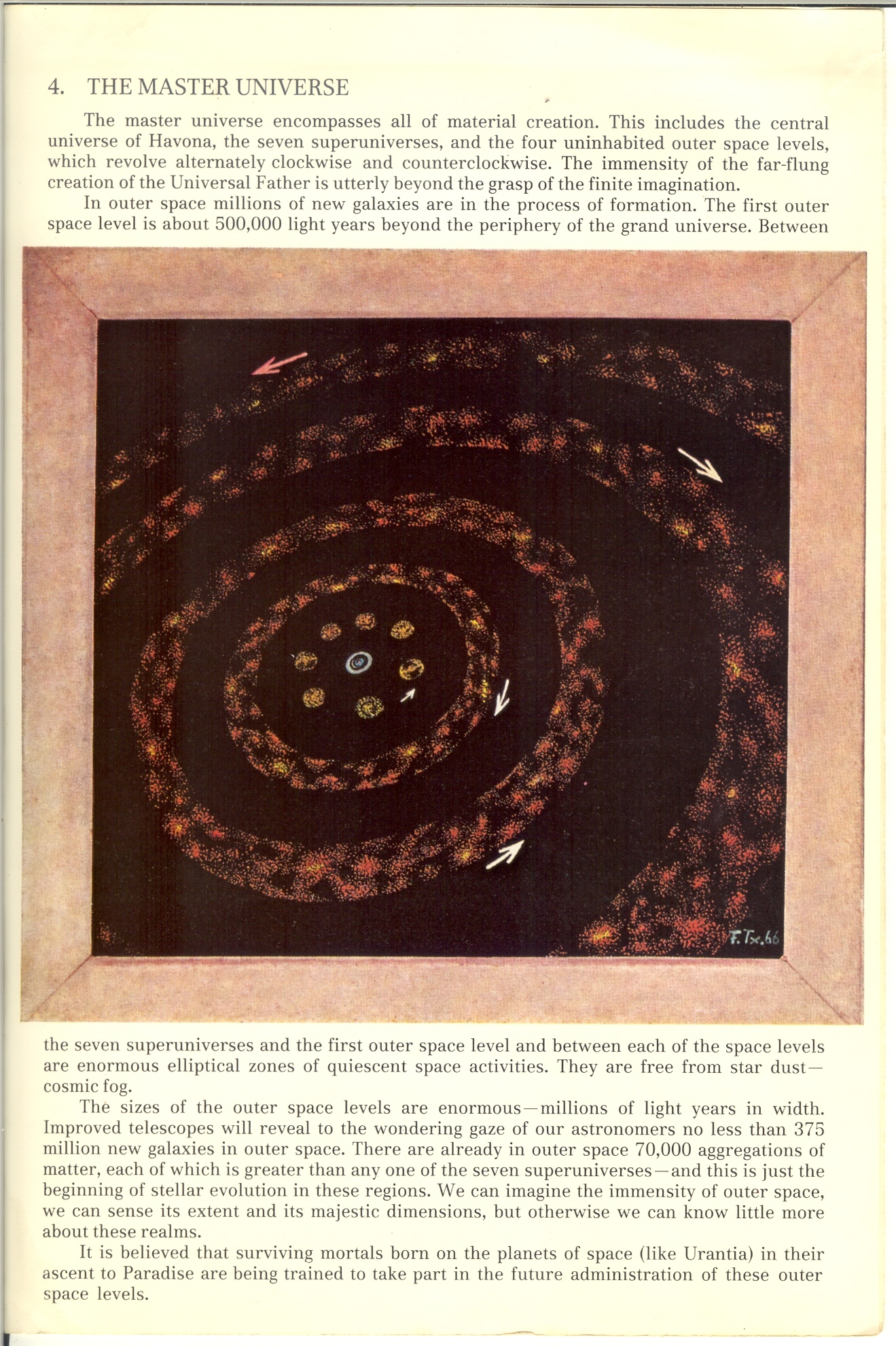
PART II. THE LOCAL UNIVERSE
Sponsored by a Nebadon Corps of Local Universe Personalities
acting by authority of Gabriel of Salvington
PART III. THE HISTORY OF URANTIA
These papers were sponsored by a Corps of Local Universe Personalities
acting by authority of Gabriel of Salvington
PART IV. THE LIFE AND TEACHINGS OF JESUS
This group of papers was sponsored by a commission of twelve
Urantia Midwayers acting under the supervision of
a Melchizedek revelatory director.
The basis of this narrative was supplied by a secondary
midwayer who was onetime assigned to the superhuman
watchcare of the Apostle Andrew.

® Registered Mark of URANTIA Foundation
![]()
![]()
Review: "J," "P," "E," and "D" are the names scholars have given to some authors of the Bible, and, as such, they are very important letters to a lot of people. Churches have died and been born, and millions of people have lost faith or found it, because of the last two centuries of debate about who, exactly, wrote the canonical texts of Christianity and Judaism. Richard Elliott Friedman's survey of this debate, in Who Wrote the Bible?, may be the best written popular book about this question. Without condescension or high-flown academic language, Friedman carefully describes the history of textual criticism of the Bible--a subject on which his authority is unparalleled (Friedman has contributed voluminously to the authoritative Anchor Bible Dictionary). But this book is not just smart. Perhaps even more impressive than Friedman's erudition is his sensitivity to the power of textual criticism to influence faith. --Michael Joseph Gross Paperback: 304 pages
Review: Dr. Robert Van Voorst, Professor of New Testament Studies at Western Theological Seminary in Holland, Michigan, has written frequently on theology and ministry in various noted journals.
ANTHOLOGY OF WORLD SCRIPTURES is a comprehensive collection of scriptures from the major world religions, including: Hinduism, Buddhism, Jainism, Sikhism, Confucianism, Taoism, Shinto, Zoroastrianism, Judaism, Christianity, and Islam, as well as scriptures from more recent religious movements. The text presents scripture readings in context, giving you a framework that shows how each religion is actually practiced today, as well as its history, teachings, organization, ethics and rituals. The readings are supported by introductions, study questions, glossaries, and suggestions for further reading, providing additional tools for review. Paperback: 400 pages














-
Urantia Book, 44:0.11 - The Celestial Artisans
Never in your long ascendancy will you lose the power to recognize your associates of former existences. Always, as you ascend inward in the scale of life, will you retain the ability to recognize and fraternize with the fellow beings of your previous and lower levels of experience. Each new translation or resurrection will add one more group of spirit beings to your vision range without in the least depriving you of the ability to recognize your friends and fellows of former estates.
-
Princess Bride 1987 Wallace Shawn (Vizzini) and Mandy Patinkin (Inigo Montoya)
Vizzini: HE DIDN'T FALL? INCONCEIVABLE.
Inigo Montoya: You keep using that word. I do not think it means what you think it means. -
Urantia Book, 117:4.14 - The Finite God
And here is mystery: The more closely man approaches God through love, the greater the reality -- actuality -- of that man. The more man withdraws from God, the more nearly he approaches nonreality -- cessation of existence. When man consecrates his will to the doing of the Father's will, when man gives God all that he has, then does God make that man more than he is.
-
Urantia Book, 167:7.4 - The Talk About Angels
"And do you not remember that I said to you once before that, if you had your spiritual eyes anointed, you would then see the heavens opened and behold the angels of God ascending and descending? It is by the ministry of the angels that one world may be kept in touch with other worlds, for have I not repeatedly told you that I have other sheep not of this fold?"
-
Urantia Book, Foreword - 0:12.12 - The Trinities
But we know that there dwells within the human mind a fragment of God, and that there sojourns with the human soul the Spirit of Truth; and we further know that these spirit forces conspire to enable material man to grasp the reality of spiritual values and to comprehend the philosophy of universe meanings. But even more certainly we know that these spirits of the Divine Presence are able to assist man in the spiritual appropriation of all truth contributory to the enhancement of the ever-progressing reality of personal religious experience—God-consciousness.
-
Urantia Book, 1:4.3 - The Mystery Of God
When you are through down here, when your course has been run in temporary form on earth, when your trial trip in the flesh is finished, when the dust that composes the mortal tabernacle "returns to the earth whence it came"; then, it is revealed, the indwelling "Spirit shall return to God who gave it." There sojourns within each moral being of this planet a fragment of God, a part and parcel of divinity. It is not yet yours by right of possession, but it is designedly intended to be one with you if you survive the mortal existence.
-
Urantia Book, 1:4.1 - The Mystery Of God
And the greatest of all the unfathomable mysteries of God is the phenomenon of the divine indwelling of mortal minds. The manner in which the Universal Father sojourns with the creatures of time is the most profound of all universe mysteries; the divine presence in the mind of man is the mystery of mysteries.
-
Urantia Book, 1:4.6 - The Mystery Of God
To every spirit being and to every mortal creature in every sphere and on every world of the universe of universes, the Universal Father reveals all of his gracious and divine self that can be discerned or comprehended by such spirit beings and by such mortal creatures. God is no respecter of persons, either spiritual or material. The divine presence which any child of the universe enjoys at any given moment is limited only by the capacity of such a creature to receive and to discern the spirit actualities of the supermaterial world.
-
Urantia Book, 11:0.1 - The Eternal Isle Of Paradise
Paradise is the eternal center of the universe of universes and the abiding place of the Universal Father, the Eternal Son, the Infinite Spirit, and their divine co-ordinates and associates. This central Isle is the most gigantic organized body of cosmic reality in all the master universe. Paradise is a material sphere as well as a spiritual abode. All of the intelligent creation of the Universal Father is domiciled on material abodes; hence must the absolute controlling center also be material, literal. And again it should be reiterated that spirit things and spiritual beings are real.
-
Urantia Book, 50:6.4 - Planetary Culture
Culture presupposes quality of mind; culture cannot be enhanced unless mind is elevated. Superior intellect will seek a noble culture and find some way to attain such a goal. Inferior minds will spurn the highest culture even when presented to them ready-made.
-
Urantia Book, 54:1.6 - True And False Liberty
True liberty is the associate of genuine self-respect; false liberty is the consort of self-admiration. True liberty is the fruit of self-control; false liberty, the assumption of self-assertion. Self-control leads to altruistic service; self-admiration tends towards the exploitation of others for the selfish aggrandizement of such a mistaken individual as is willing to sacrifice righteous attainment for the sake of possessing unjust power over his fellow beings.
-
Urantia Book, 54:1.9 - True And False Liberty
How dare the self-willed creature encroach upon the rights of his fellows in the name of personal liberty when the Supreme Rulers of the universe stand back in merciful respect for these prerogatives of will and potentials of personality! No being, in the exercise of his supposed personal liberty, has a right to deprive any other being of those privileges of existence conferred by the Creators and duly respected by all their loyal associates, subordinates, and subjects.
-
Urantia Book, 54:1.8 - True And False Liberty
There is no error greater than that species of self-deception which leads intelligent beings to crave the exercise of power over other beings for the purpose of depriving these persons of their natural liberties. The golden rule of human fairness cries out against all such fraud, unfairness, selfishness, and unrighteousness.

 Are We Alone?
Are We Alone?






